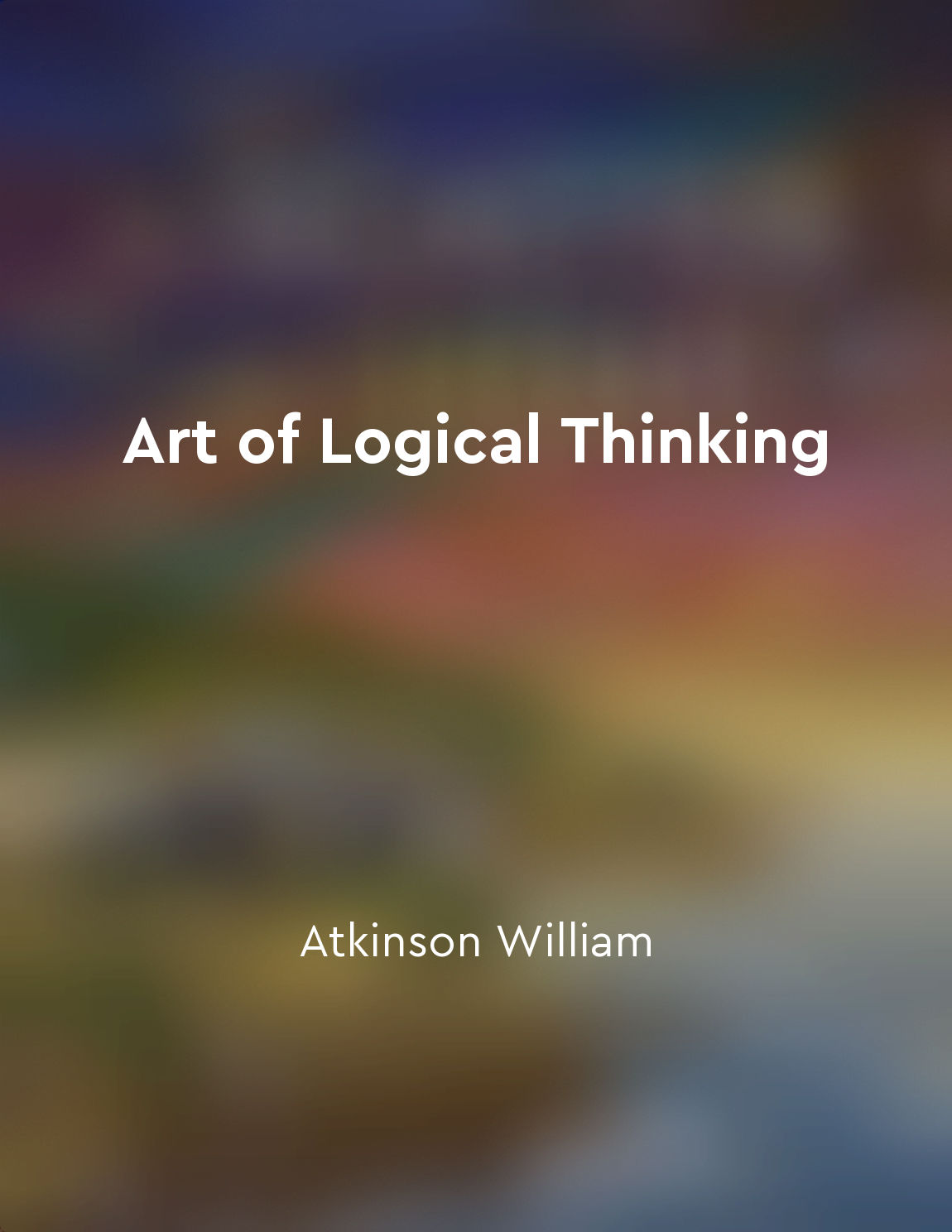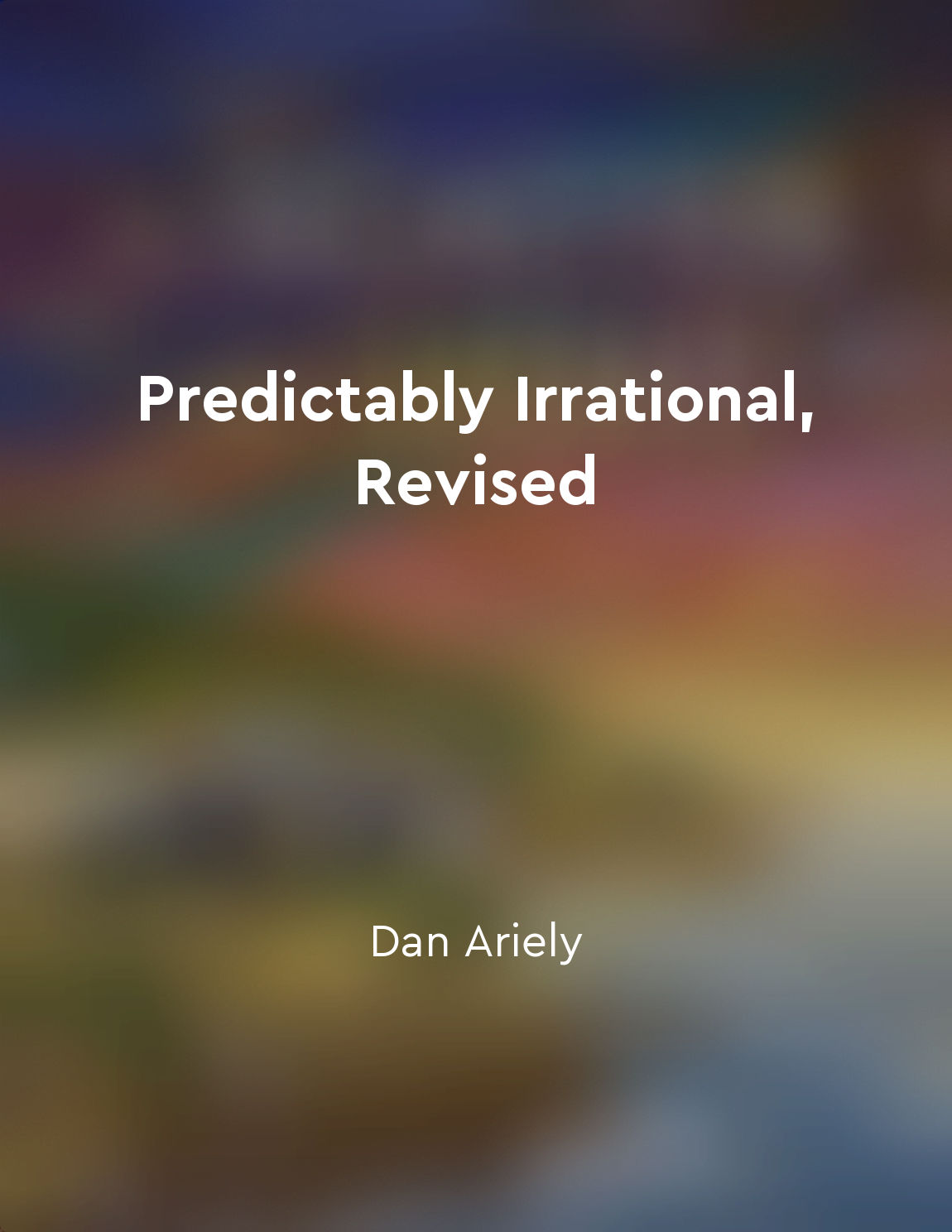Audio available in app
We rely on mental shortcuts to simplify complex decisions from "summary" of Predictably Rational? by Richard B. McKenzie
As human beings, we often find ourselves faced with complex decisions that require careful consideration and analysis. However, our brains are wired to seek out shortcuts to simplify this process. These mental shortcuts, also known as heuristics, allow us to make quick judgments and decisions without expending too much mental energy. One common mental shortcut that we rely on is the availability heuristic. This heuristic involves making decisions based on information that is easily accessible in our minds. For example, if we recently heard about a plane crash on the news, we may be more likely to believe that flying is a dangerous mode of transportation, even though statistically speaking, it is much safer than driving. Another common mental shortcut is the representativeness heuristic. This heuristic involves making judgments based on how closely something resembles a typical example or prototype. For instance, if we meet someone who fits our idea of what a "successful" person looks like, we may assume that they are indeed successful without considering other factors. While mental shortcuts can be helpful in simplifying complex decisions, they can also lead to errors in judgment. These errors are known as cognitive biases, and they can cause us to make irrational decisions based on faulty reasoning. For example, the confirmation bias leads us to seek out information that confirms our preexisting beliefs while ignoring evidence that contradicts them.- It is important to be aware of these mental shortcuts and cognitive biases. By consciously slowing down our thought processes and considering all relevant information, we can overcome the limitations of our automatic thinking patterns. Ultimately, becoming more aware of our cognitive tendencies can help us make better decisions in both our personal and professional lives.
Similar Posts

Logic is the foundation of critical thinking
Logic plays a crucial role in the development and application of critical thinking skills. It serves as the foundation upon whi...

We tend to follow the path of least resistance
When faced with a decision, we often opt for the easiest choice, the path of least resistance. This tendency is deeply ingraine...
Engage in selfreflection to enhance self-awareness
Self-reflection is a powerful tool for gaining a deeper understanding of ourselves. By taking the time to reflect on our though...
Reason alone cannot establish truths about the world
Reason, as it is understood by many, is the faculty that allows us to discern truths about the world. It is often seen as the t...

Selfjustification can lead to irrational actions
Imagine you find yourself in a situation where you have made a decision that turned out to be a mistake. Your brain will likely...
The brain can rewire itself in response to new experiences
One of the most remarkable features of the brain is its ability to adapt and change in response to new experiences. This phenom...

Behavioral finance explores the psychological factors influencing investment decisions
Behavioral finance is a field that delves into the psychological factors that can impact the decisions individuals make when it...
Our desire to find meaning in random events can lead to superstition
Humans have an innate tendency to seek patterns and meaning in the events around them. We are wired to create narratives that c...

Seek out new perspectives
To truly think independently, you must actively seek out new perspectives that challenge your existing beliefs and assumptions....
Personalizing communication can trigger a stronger emotional response
When we make communication more personal, we are tapping into a powerful trigger that can evoke a stronger emotional response i...

